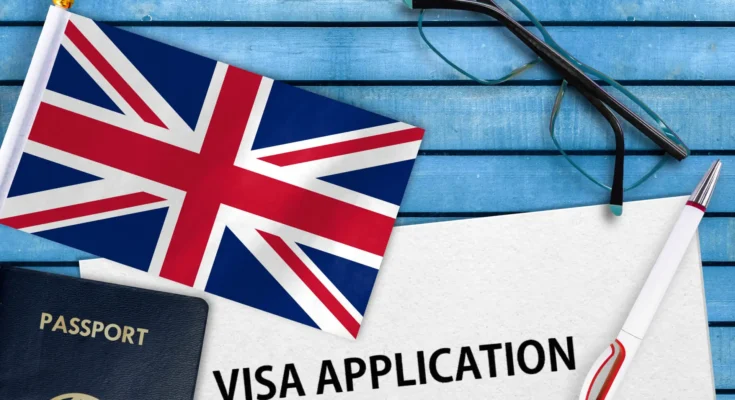Students from all over the world have always wanted to go to the UK because of its famous universities, cutting-edge research, and lively cultural scene. The UK has an academic trip like no other. From the mediaeval spires of Oxford and Cambridge to the busy innovation centres of London and Manchester, the UK has it all. But for many overseas students, the high cost of living and tuition can be a big problem. This is where scholarships are quite helpful.
This complete guide will help you navigate the world of UK scholarships by giving you information about the main providers, application tactics, and important suggestions to improve your chances of getting money for your studies in 2025 and beyond.
Why go to school in the UK? An Everlasting Appeal
There are a few main reasons why a UK education is still so popular:
UK degrees are well-known and respected all over the world, which might lead to job prospects around the world.
Academic Excellence: Universities are always ranked among the top in the world because they have tough academic programs and research facilities that are among the best in the world.
Many Programs: There are many courses offered in various fields, so students with different academic interests and career goals can find what they need.
Shorter Course Durations: A lot of Master’s programs last only one year, which means students can start working sooner and maybe save money on living expenses.
Multicultural Environment: The UK is home to people from many different cultures, which makes for a rich and varied student experience and a chance to meet people from all over the world.
Post-Study Work Opportunities: The Graduate Route visa lets international students who meet the requirements stay and work in the UK for two years (three years for PhD grads) after they finish their studies. This gives them significant job experience.
Finding your way around the UK scholarship scene
In the UK, colleges usually charge greater tuition fees than in other countries, like Germany, where overseas students sometimes don’t have to pay them. This means that scholarships are quite important for many overseas students’ finances.
In the UK, scholarships usually fit into one of these groups:
Merit-Based Scholarships: Given to students who do very well in school. These are really competitive.
Need-Based Scholarships: Given to students who can show that they really need the money.
Subject-Specific Scholarships: These are for students who want to study a certain subject, like STEM, the arts, or the humanities.
Country-Specific Scholarships: These are only for students from certain countries and are often part of development projects or bilateral agreements.
Partially financed or fully funded: Some scholarships only pay part of the costs of living, tuition, or flights, while others cover all costs, including flights and health insurance.
How to Apply for Major Scholarships
To get a scholarship, you need to do a lot of research and plan beforehand. Here are some of the biggest organisations that give scholarships to international students in the UK:
1. Scholarships from the government
These are some of the most competitive and prestigious scholarships. They are often completely funded and meant to help young people become leaders.
Chevening Scholarships:
The UK government’s global fellowship program is financed by the Foreign, Commonwealth & Development Office (FCDO) and other groups. Chevening scholarships give great up-and-coming leaders from all around the world the chance to get a Master’s degree at any UK university for a year. They are completely supported, which means they pay for everything, including tuition, travel, housing, and a living allowance.
Who can apply (for 2025/2026):
Be a citizen of a country or territory that is eligible for Chevening.
Promise to go back to your native country for at least two years once your scholarship ends.
Have worked for at least two years (2,800 hours). This could be full-time, part-time, voluntary work, or paid or unpaid internships.
Have a bachelor’s degree that lets you apply for a Master’s program in the UK.
You must apply to three distinct UK university courses that you are eligible for and get an unconditional offer from at least one of them by the deadline.
Not be a British citizen or a dual British citizen (unless they are from a British Overseas Territory or have a BN(O) from Hong Kong).
Not have previously studied in the UK on a scholarship financed by the UK government.
How to Apply:
Applications usually open in August and close in early November for the next academic year’s studies (for example, August to November 2024 for September 2025).
You can fill out the application online on the Chevening website.
It includes essays, letters of recommendation from professors and professionals, and verification of work experience.
People who are on the shortlist will be invited to an interview between February and April.
It’s very important to apply for university courses before the Chevening deadline and get an unconditional offer before the references and education documents deadline.
Commonwealth Scholarships:
The Commonwealth Scholarship Commission (CSC) in the UK runs these scholarships. They are for smart people from Commonwealth countries (developing and low/middle-income nations) who wouldn’t be able to afford to study in the UK otherwise. They mostly pay for professional growth and postgraduate courses (Master’s and PhD). Most of them are fully funded, which means they pay for tuition, flights, and a living stipend.
Who can apply:
You must be a citizen or permanent resident of a Commonwealth country that meets the requirements.
Have an undergraduate honours degree that is at least upper second class (2:1). To get a PhD, you need to have a Master’s degree that is right for you.
Be unable to pay for school in the UK without the scholarship.
Fulfil the distinct requirements for each scholarship category (e.g., Master’s, PhD, Shared, Distance Learning).
Often connected to certain development goals, such improving health systems or using science and technology for development.
How to Apply:
For the next school year, applications are normally open from August to December.
There are other ways to apply: you can do so through a university, a National Nominating Agency in your own country, or a Non-Governmental Organisation. You should check the CSC website to find out how to apply for the scholarship you want in your country.
A passport, academic transcripts, degree certificates, two references, and an entrance letter (if one is available) are usually required.
2. Scholarships for Specific Universities
To get the best overseas students, several UK colleges provide their own scholarships, bursaries, and grants. These might be partially or totally sponsored, and they are very competitive.
How to Find Them:
University Websites: This is your main source of information. Go to the “International Students,” “Admissions,” “Fees & Funding,” or “Scholarships” pages of the universities you want to apply to.
Information about the program: Some grants are only for certain departments or programs. Look at the details of the course you choose.
International Office: If you want to know about funding options for international students, you can call the university’s International Office directly.
Types of University Scholarships That Are Common:
Vice-Chancellor’s Scholarships: Highly sought-after rewards for very smart students that often cover all of their costs.
Dean’s or departmental scholarships are given by certain faculties or departments and are usually based on merit.
Alumni Scholarships: For students who have already gone to the university.
Regional or country-specific scholarships are for students from certain areas or nations.
Partnership Scholarships: working with other businesses or groups.
Some well-known universities with very competitive scholarship programs are:
Clarendon Fund and Rhodes Scholarship at the University of Oxford: Clarendon offers fully financed scholarships for Master’s and DPhil students. The Rhodes Scholarship is for outstanding students from certain groups around the world who want to study at Oxford once they finish their undergraduate degree.
The Gates Cambridge fellowship is a very competitive, fully funded fellowship for non-UK citizens to study at the University of Cambridge.
The London School of Economics (LSE) gives out a number of scholarships based on merit and/or financial need to students in all of its departments.
Imperial College London gives out a lot of scholarships to graduate students, mostly in STEM subjects.
University of Edinburgh: Gives a lot of scholarships to overseas students at all levels.
University of Bristol (Think Big Scholarships): A big initiative that gives overseas students a lot of different scholarships.
University College London (UCL) (UCL Global Masters Scholarships): Gives Master’s students a variety of full-tuition scholarships.
How to Apply:
You usually have to apply to the university first and get an offer.
Some scholarships for college require you to fill out a separate application that includes essays, references, and a CV.
Some people might get them automatically based on how well they did in school when they applied.
Deadlines: The deadlines for university scholarships are very different. Some are due at the same time as admissions, while others are not. It is strongly suggested that you apply early for both admission and scholarships.
3. Foundations and organisations from outside
There are several outside groups that give scholarships to international students, such as the British Council, charitable foundations, and commercial enterprises.
The British Council’s GREAT Scholarships:
Summary: The British Council, the UK government’s GREAT Britain Campaign, and some UK universities all help pay for this initiative. These scholarships help pay for tuition for one-year Master’s degrees in many different fields, usually in the amount of £10,000 or more.
Eligibility: Students from certain countries can apply (the list changes every year, but it usually includes China, India, Indonesia, Kenya, Malaysia, Nigeria, Pakistan, Thailand, and Vietnam). You need to have an offer from a UK university that is taking part.
How to Apply: Send your application directly to the university you want to attend. The universities choose who gets the award. For the 2025/2026 academic year, you may see a list of participating universities and qualifying countries on the Study UK website.
Global Wales Scholarships: For kids who want to go to college in Wales. Most of the time, these scholarships give up to £10,000 towards tuition.
Rotary International Global Grants: For graduate students who are studying in one of Rotary’s six areas of focus: disease prevention and treatment, water and sanitation, maternity and child health, basic education and literacy, economic and community development, or peace and conflict prevention and resolution.
Funding Bodies by Country: Many nations have their own government-funded scholarship programs that help their nationals study abroad. For example, the PTDF Scholarship for Nigerian students and the Saudi Arabian Cultural Bureau Scholarships. Look at the scholarship programs offered by your home country’s government.
Charitable Trusts and Foundations: Many smaller trusts and foundations give scholarships based on certain criteria, such as nationality, subject, financial need, or religious connection. You need to do a lot of study on online databases like Scholarship Search and UKCISA to find these.
Important Tips for Applying for Scholarships
There are a lot of people who want UK scholarships. Here are some important tips to help you stand out:
Start Early and Do Your Research: The time to apply for scholarships starts months before the school year starts. Start looking for a job at least 12 to 18 months in advance. Use the websites of universities, the British Council’s Study UK site, and big scholarship databases.
Academic Excellence is Key: Most scholarships, especially the ones that are hard to get, are based on merit. Keep up a good academic record (high GPA/grades) from your last school.
Write a strong personal statement or essay:
This is your chance to express your narrative, not just your academics.
Read the essay question attentively and make sure you answer all of it.
Be real and personal: Talk about real experiences, problems, and goals. Don’t use cliches.
Instead of claiming “I am a leader,” give an example of a time when you showed leadership.
Connect to the Scholarship’s Mission: Look into the values and mission of the scholarship sponsor and explain how your ambitions fit with theirs.
Emphasise Future Impact: Explain how the scholarship will help you reach your academic and career goals, as well as how you plan to give back to your community or field once you finish school.
Structure and Clarity: Start with a clear introduction, then use body paragraphs with particular examples, and end with a strong conclusion.
Check your work carefully: Mistakes in spelling and punctuation might hurt your application a lot. Ask more than one person to read your writing.
Get Strong Letters of Recommendation:
Pick referees (such professors or employers) who know you well and can talk about your character, work ethic, and intellectual skills.
Give them all the information they need, such as your CV, personal statement, the conditions for the scholarship, and the deadline. Give them enough time.
Emphasise Extracurricular Activities and Leadership: Many scholarships, especially those from foundations, look for individuals who are involved in the community, show leadership abilities, and are socially active. Show off any volunteer work, club membership, or leadership responsibilities you’ve had.
Language Requirements: If you want to take a program taught in English, you usually need to show that you know the language well by taking the IELTS Academic or TOEFL iBT tests. It’s best to aim for results better than the minimal required, as this can help you.
Networking and Getting Information: Go to education fairs, webinars, and online events put on by institutions or the British Council. Talk to graduates or current students who have gotten scholarships to get useful information.
Know the difference between partial and full funding: Be honest. Fully financed scholarships are the best, but they are quite hard to get. Think about applying for partial scholarships that pay for a large proportion of your living or tuition fees. A tiny scholarship can make a big difference.
Keep track of deadlines: Make a detailed calendar or spreadsheet with all the scholarship deadlines, required documentation, and application portals. If you miss a deadline, you miss an opportunity.
Things to think about before your trip to the UK
Competitiveness: Many people want UK scholarships. Be ready for a tough application process, and don’t let rejections get you down.
Financial Gap: You may still have to pay for some things, even if you get a scholarship. Carefully plan your budget, taking into account tuition fees (if they aren’t fully covered), living expenditures (food, accommodation, transportation, and personal expenses), and the Immigration Health Surcharge (IHS).
UK Visa Financial Requirements: To get a student visa, you need to show that you have enough money to pay for your course tuition for the first year (or the whole time if it’s less than a year) and your living expenses. The most recent advice says that this is usually £1,334 per month for up to 9 months for London and £1,023 per month for up to 9 months for outside London. You must have kept this money in your bank account or a recognised sponsor’s account for at least 28 days in a row.
Cost of Living:
Cost of living: Depending on where you live, it might cost between £300 and £1000 or more per month (London is much more expensive). University halls are an excellent place to start.
Food costs between £100 and £250 a month. Eating out is a lot more expensive than cooking at home.
Transport costs between £50 and £100 per month, depending on the city. There are often reductions for students.
Utilities and the Internet cost between £100 and £200 a month, unless they are included in the rent.
Personal Expenses: £50–£100 or more a month for clothes, toiletries, entertainment, and other things.
Immigration Health Surcharge (IHS): This is a required fee that you pay when you apply for a visa. It gives you access to the National Health Service (NHS). It costs £776 per year for your visa or £388 for 1–6 months right now.
Visa Application Integration: Scholarships can help with the money part, but make sure your visa application follows all UKVI rules for proof of finances. Official scholarship letters can be used as proof.
Final thoughts:
Going to school in the UK is a life-changing experience that gives you a world-class education and helps you grow as a person in ways that no other place can. Even though the cost can be high, overseas students can make their goal come true thanks to the many scholarships that are available. You may greatly improve your chances of getting the money you need to study in the UK in 2025 and beyond by doing thorough research, writing a solid and convincing application, and showing off your academic skills and potential. Start getting ready today, keep going, and good luck with your applications!




Hi, this is a comment.
To get started with moderating, editing, and deleting comments, please visit the Comments screen in the dashboard.
Commenter avatars come from Gravatar.